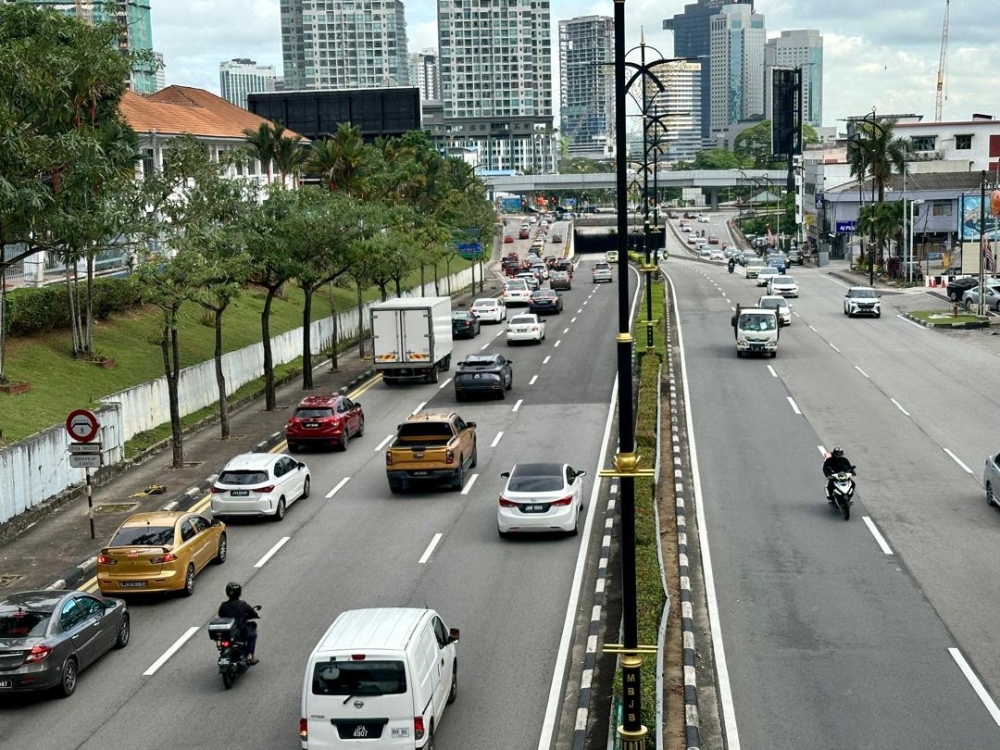JOHOR BARU, Aug 3 — Several experts have warned that the worsening traffic conditions in Johor Baru is set to stunt the state capital’s growth and quality of life, if it continues to be unaddressed.
Speaking to Malay Mail, the traffic woes may even impact future projects such as the Special Economic Zone (SEZ) and the Special Financial Zone (SFZ) — stunting the state’s growth.
“Congestion during peak hours is now common, with traffic volume increasing steadily over the years. Major roads and highways are often clogged, leading to long delays and reduced productivity.
“The congestion in Johor Baru is not only a day-to-day inconvenience, it also poses a threat to the local economy, tourism and daily commuting,” said Universiti Teknologi Malaysia’s Civil Engineering Faculty’s Associate Professor Sitti Asmah Hassan.
Sitti Asmah, who is an expert in the areas of traffic engineering, transport safety and modelling, pointed out that delays in logistics and supply chains will increase operational costs that will impact businesses, especially those that rely timely deliveries.
“The tourism sectors, a vital part of Johor’s economy, will also suffer as visitors find it difficult to navigate the city,” she said.
In addition, Sitti Asmah said employees arriving late due to traffic congestions will have an effect on their productivity and morale.
She said that the time spent in traffic reduces the quality of life for residents, leading to frustration and potential reduction in productivity.
On the horizon are also high-impact projects such as the Johor-Singapore Special Economic Zone (JS-SEZ) and the Special Financial Zone (SFZ) in Forest City, aiming to place Johor as a key growth driver in Malaysia.
However, worsening traffic situation would hamper these efforts — especially when compared to how neighbouring Singapore has relied on public transport instead.

Universiti Tun Hussein Onn Malaysia (UTHM) academic Nor Aziati Abdul Hamid proposed several steps to ensure this does not happen, including focusing on infrastructure development, smart traffic management, policy measures, cross-border solutions and sustainable transportation.
“Addressing traffic congestion effectively is crucial for maximising Johor’s economic potential and ensuring the success of the special zones,” the professor told Malay Mail.
Nor Aziati, who is also UTHM’s Industry Centre of Excellence for Railway head, explained that both the JS-SEZ and SFZ are being designed with integrated transport networks in mind, including potential connections to the Johor Baru-Singapore Rapid Transit System and the High-Speed Rail project.
“Improved infrastructure is crucial. Upgrading existing roads and potentially implementing light rail systems are under consideration,” she said.
Sitti Asmah concurred and added that the JS-SEZ and SFZ are pivotal projects aimed at boosting the region’s economic growth that could be significantly affected by the ongoing traffic issues.
“These zones are designed to attract foreign investment and create job opportunities, relying heavily on efficient transportation networks to succeed.
“However, persistent traffic gridlocks may deter potential investors concerned about logistical inefficiencies and the overall business environment,” she said.
According to state government data, there is an average of 7,433 local-registered and 3,744 Singapore-registered vehicles that enter Johor Baru city per hour.
Malaysia was ranked as the fourth-worst country in South-east Asia in terms of traffic congestion, according to the Traffic Index by City 2020 Mid-Year, and holds the second-highest level of carbon dioxide emissions related to this issue.



















